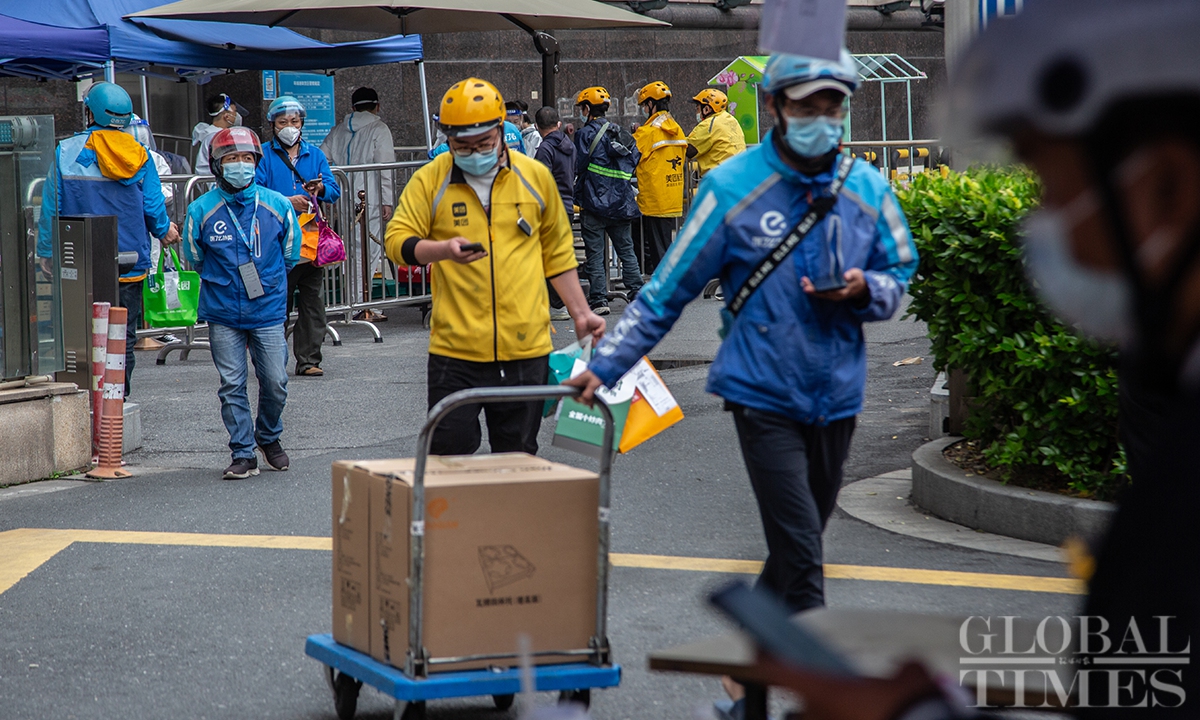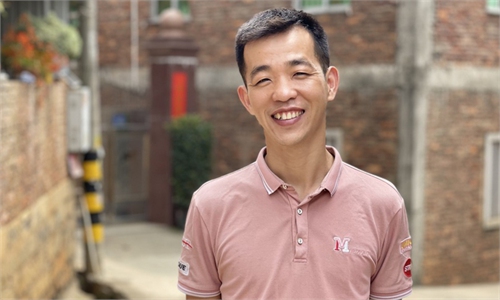Food delivery capacity in Beijing faces pressure as orders surge amid epidemic flare-up

Deliverymen go in and out of the backdoor of Global Harbor to pick up takeouts. Photo: Wu Shiliu
The delivery capacity of internet-based food platforms is facing surging orders and pressure in Beijing, as the capital city battles against an ongoing wave of COVID-19 flare-up.
The Global Times learned from city residents that many deliveries for e-commerce platforms including Hema, Sam’s Club, and other platforms are delayed. In some cases, orders might be canceled, while some consumers may not be able to even make purchases online due to a shortage of delivery personnel.
One Haidian District-based resident told the Global Times that she encountered difficulty getting items delivered on various fresh food platforms such as Alibaba’s Hema and Sam’s Club.
“I can still make delivery orders on JD Daojia, but it remains unknown whether the order can be delivered today or later,” she said. JD Daojia is a fresh food delivery platform operated by e-commerce giant JD.com.
The Haidian resident said that she ordered a box of fresh vegetables on JD Daojia Sunday morning for delivery in the afternoon, but the items did not arrive until Monday morning.
The current delivery capacity bottleneck is being caused by a significant increase in order volume combined with a number of delivery drivers themselves subject to epidemic related restrictions, a representative from Dingdong Maicai, told the Beijing Daily, adding that supply remains sufficient.
For example, the average daily volume of order for the Shilipu community in Chaoyang District, increased from 900 orders to 1,400-1,500 orders recently, the representative said.
The Beijing government has been stepping up efforts to ensure a steady supply of food and essential items while ensuring prices remain stable.
The Beijing Municipal Commerce Bureau provided guidance to e-commerce platforms to increase the stocking by three to five times than usual, while implementing measures to ensure adequate inventory, stable price and timely distribution, Zhao Weidong, deputy director of the bureau said at a press briefing on Tuesday.
The city has also distributed 800 tons of pork and 51,000 tons of vegetables reserve with more to be released soon.
Global Times

